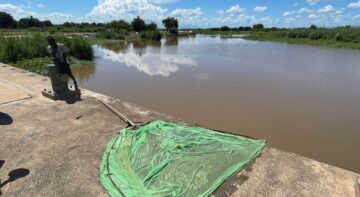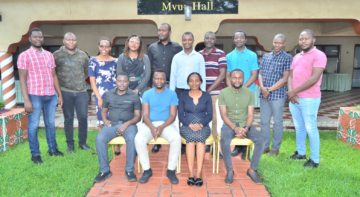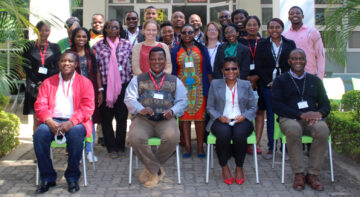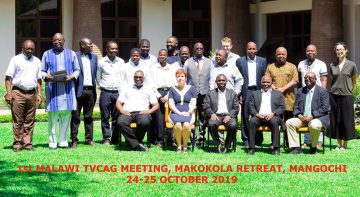Blogs

From 15 to 19 October, 2018, the African Institute for Development Policy (AFIDEP) held a 5-day training at the Liverpool School of Tropical Medicine (LSTM) on policy engagement and evidence uptake for the benefit of country coordinators and research fellows working under the Partnership for Increasing the Impact of Vector Control (PIIVeC) programme, in addition to PIIVeC staff.
PIIVeC works to control the spread of vector-borne diseases such as malaria and yellow fever through the control of “vectors” “ living organisms that spread diseases, such as mosquitoes, ticks, and tsetse flies.
The AFIDEP policy engagement and evidence uptake training is designed to engage young researchers in participatory training sessions involving interactive presentations, group work, case studies, and practical application exercises. The training covers the foundation of policymaking and evidence uptake, policy analysis, stakeholder mapping, communication strategies, packaging evidence, monitoring and evaluation for policy influence.
The October event was the second time that this training has been held. The curriculum was adapted from training delivered between January-February 2018 for the International Multidisciplinary Programme to Address Lung Health and TB in Africa (IMPALA), also at LSTM. We made adaptations to the training curriculum based on feedback and discussions with partners about the unique needs of PIIVeC researchers.
The training was a success, receiving highly positive feedback from participants, and an over 15% increase in scores between the pre- and post-tests. But the training did much more than give PIIVeC research fellows the skills to engage policymakers “ it inspired them to consider the impact of their work outside of the lab. At the end of the training, one participant noted that he had been unable to come up with a personal objective for the training at the start and had been unsure how he would benefit from a week-long training on policy. However, at the end of the training, he was very excited about simplifying his research, packaging it, and engaging with policymakers. Another participant indicated that she planned to revisit her study design as a result of the training.
Three months after the training, Elizabeth Bandason, a PIIVeC research fellow based in Malawi, made this reflection:
Being a scientist who has spent so much time glued to a laboratory bench finding answers on why insects behave the way they do, my focus was on getting results, I did not care so much about the So What? question. Participating in the AFIDEP training, changed my whole perspective on my research. I learned to communicate my research in the simplest way and I was able to answer my So What? question.”
Another PIIVeC research fellow based in Malawi, Eve Olanga, noted the importance of emphasising the role of researchers in policy making, as well as packaging evidence:
“Very insightful training on the role of researchers in policymaking. As a researcher, it was useful to gain skills in evidence synthesis and effective communication to stakeholders of different backgrounds. I also feel better equipped to translate research findings into forms of evidence and presenting it as policy briefs.”
Overall, the research fellows are eager to utilise skills gained in various ways, including making plans to publish policy briefs on malaria ahead of World Malaria Day on April 25. There is also demand for further training with participants feeling that the sessions needed more time allocation and that one week may not be enough for the rich content covered.
In the coming years, AFIDEP hopes to expand the reach of our policy engagement and evidence uptake training, with the hope to inspire more early-career researchers across the continent to move beyond producing scientific products to informing policy formulation and action to benefit communities.
PIIVeC is an LSTM-led programme, and it brings together research institutes and national disease control programmes from three African countries with high burdens of vector-borne diseases: Burkina Faso, Cameroon, and Malawi, to develop evidence-based solutions for integrated vector control. This initiative extends support to ten research fellows (called Research Career Development Fellows, or RCDFs) across the three countries. The PIIVeC research fellows are early-career researchers in the field of vector control, including eight medical entomologists, a virologist, and a health economist.
Related Posts





